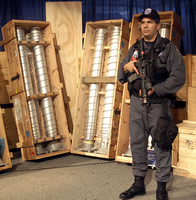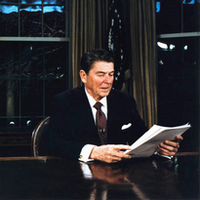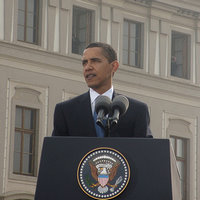Brian Till makes a very good point: As we begin to re-imagine the world for the twenty-first century –Sergio’s world, as Power is fond of saying, of “broken people andbroken states” — it seems that building successful legal systems needsa bigger niche than we typically afford. This is true in South Asia, where filling the “rule of law” vacuum has historically been an opening for Taliban influence. In Pakistan, particularly, a significant amount of the military-civilian jockeying has played out recently — and currently — over the independence of the judiciary. This is also a good example of a concrete […]
Global Archive
Free Newsletter
The United States signed on to the U.N. Convention on the Rights of Persons with Disabilities last week, joining 141 other countries in efforts to set international standards of rights protections for the estimated 650 million disabled people worldwide. The Convention obliges signatories to prohibit discrimination against people with disabilities and actively support their full participation in society. It was adopted by the U.N. General Assembly in 2006 and came into force in May 2008. U.S. policymakers have long had reservations about international treaties related to human rights, signing and ratifying only 3 out of 26 currently in force — […]

Driven by food security concerns, governments around the world have begun purchasing land in developing nations for agricultural purposes. Foreign land acquisition — known by critics as “land grab” — responds to worries over global problems that include growing water scarcity, teeming populations, increasing demand for food and bio-fuels, and climate change impacting arable land and its productivity. This trend necessitates an international framework or code of conduct that can protect small local farmers as well as the economy and the ecology of the host country from potentially negative impacts. Such a code would seek to resolve the question of […]

President Barack Obama’s praiseworthy effort to establish a bipartisan national security team, epitomized by his decision to maintain Robert Gates as secretary of defense, continued with his and Gates’ appointment of Kenneth A. Myers III as the new director of the Defense Threat Reduction Agency (DTRA). Myers previously worked on the personal staff of Sen. Richard Lugar, who himself has a long history of reaching across the aisle to build bipartisan coalitions on behalf of various national security initiatives. Along with then-Sen. Sam Nunn, Lugar helped launch the Cooperative Threat Reduction (CTR) Program at the Defense Department in 1991. In […]

An Alternative to Arms Control Every Washington wonk dreams that a new president will pick up his or her agenda. When it comes to advocates for nuclear arms control, that dream seems to be coming true. On the editorial pages of the Wall Street Journal in January 2007, George Shultz, William Perry, Henry Kissinger and Sam Nunn voiced a clarion call for the “road to zero,” urging other former high-level officials from countries around the world to join them in pushing for the global abolition of nuclear weapons. The following year, only months before the presidential election, George Perkovich and […]

While headlines focus increasingly on President Barack Obama’s responses to the nuclear programs of North Korea, Iran, and Pakistan, the new administration has been quietly investing a substantial amount of diplomatic time and capital in a somewhat obscure meeting that nevertheless could have significant implications for Obama’s nonproliferation agenda. The meeting, which will take place at the United Nations nearly a year from now, is the latest in a regularly scheduled series of gatherings of signatory states to review the nuclear Nonproliferation Treaty. To a significant degree, the Obama administration’s posture to date on a variety of nonproliferation issues has […]
